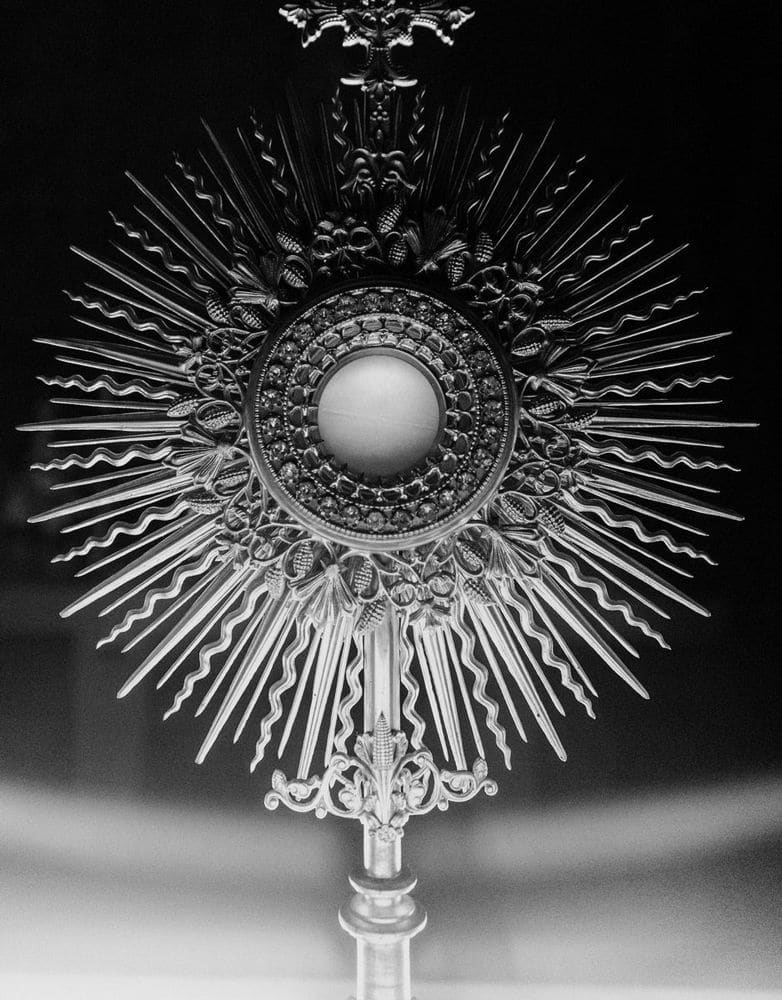Fr. Tyler Dennis
My father always said that of his three sons, he wanted them to be a doctor, a lawyer, and a priest so that he would be well provided for in his old age. For whatever reason, it was assumed that of these options, I would pursue priesthood. It was not a path to which I objected. I always loved the rituals of the Church. There was something deep and mysterious that attracted me. Perhaps I was an odd boy in that regard. I liked things that most other boys my age did not. I liked to read. I liked music. I liked school, especially history. These, I suppose, might have been overlooked by my peers if I had also had any interest in the things typical to other boys my age. But I didn’t. I wasn’t much good at running, jumping, throwing, kicking, or catching. I was a poor athlete, and, as time went on and I grew older, at least in my own estimation, I was not a very good son. I didn’t enjoy the things my dad enjoyed, and I believed myself to be a disappointment.
By the time I entered high school, I had developed lots of protective walls around my heart to prevent others from seeing the failure I believed myself to be. These walls manifested themselves as cynicism, anger, self-righteousness, sarcasm, and an acid tongue. I thought that these characteristics prevented others from seeing my deep envy of all the people who possessed all the qualities that I thought I lacked. All they really revealed was an injured young man who desperately needed someone to love him and to tell him he was worth something.
Through all of this, my desire to go to the seminary never waned, and after graduation, I entered the minor seminary. While there, I finally met men who shared interests similar to my own. I thrived in the rich academic environment. I studied philosophy and Spanish. I made good friends. The walls, however, still did not come down. I was still waiting for someone to love me enough to break through those barriers. I wanted to know God’s love, but it never happened. At the end of four years, I had come to believe that for me, God’s love would forever remain an intellectual concept and a logical necessity. I would never feel it.
This conviction began to change when I participated in my first serious silent retreat. It was an eight-day Ignatian retreat. On the retreat, I was to pray for an hour at a time on four separate occasions each day. I was also to meet with my spiritual director once each day. I had permission to read two short books on retreat.
Silence works as a magnifying glass on the soul. After three days, I had read both books and slept so much that I could sleep no more. I had only the silence, and Jesus in the Eucharist before whom I prayed at each hour. One day, during one of those hours I was trying to pray. I was hot, the chapel was hot, and it was crowded with other retreatants praying. It was noisy with fans blowing. Suddenly, I was aware that I was angry. I was angry at the situation I was in, angry that I felt like I was wasting time waiting for someone to love me, and angry that I was no good. I was angry enough that I started cursing at Jesus. At the end of my outburst, I felt a sensation as though strands of barbed wire around my heart had burst, and I was suddenly able to feel what I had so long avoided — my fear, my jealousy, my shame. I saw an image of Jesus on the cross. He spoke to me saying, “I died so you could be this angry.” For the first time, I spoke to him honestly about how I saw myself, and he listened.
This retreat happened in early June. I spent the rest of that summer praying honestly, always in front of the Eucharist, and by the time summer had ended, Jesus convinced me that he loved me. It was slow, and patient, and convincing. Since that time, he has had to remind me that he loves me over and over again. He is so faithful to me even when I am unfaithful to him. Each time, when I need this reminder most powerfully, he tells me as I sit before him in the Eucharist. Most recently, he did this while I went through the Spiritual Exercises of St. Ignatius. Over and over, he filled me with the knowledge of his love. Each time, it was as I prayed with him in the Eucharist. I no longer doubt that he loves me. I do not wonder where to find his love when I feel as though I have wandered from him. Jesus loves me now, He always has loved me, and He always will. He proves it to me in the Eucharist.


